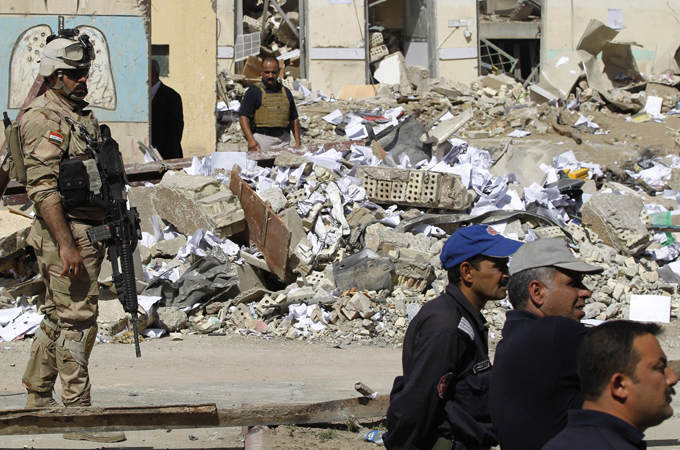By Melike Ince
Impunity Watch Reporter, Middle East
ANKARA, Turkey — A Kurdish man who is deaf, mute, and illiterate faces twenty-five years in prison in Turkey for allegedly taking part in protests that support terrorism.

On April 21, 2011, Mehmet Tahir Ilhan was on his way home from his job as a porter in the city of Mersin when he noticed protestors for the banned Kurdish Workers Party (PKK) conducting a demonstration. With the help of a sign language interpreter, Ilhan testified that “A friend [of mine] gestured at me to join them but I refused.” He added, “I did not throw rocks, Molotov cocktails or fireworks at the police.” He was arrested at the protest and later released in Mersin, only to again be taken into custody in the province of Adana, an area that happened to be looking into the case.
Ilhan, who is married and father to six children, has been deaf and mute his entire life. His lawyer, Tugay Berk, believes that the charges defy logic.
“It is impossible for my client to chant slogans,” said Berk. “It is against logic and reason to charge a suspect, who is lacking the physical abilities to make propaganda on behalf of an organization, with such an accusation. The fact that İlhan is being put on trial for making propaganda on behalf of a terrorist organization is tragicomic. We request that this unlawfulness be ended immediately.”
The charges against Ilhan include committing a crime on behalf of a terrorist organization, making propaganda on behalf of a terrorist organization, and resisting arrest. The evidence the prosecutor intends to use consists of Ilhan’s possession of half a lemon, which is known to ease the effects of tear gas. Turkish Courts been known to convict with little evidence to support a charge.
It is an offense to show any public support for the PKK in Turkey, even though the use of these anti-terrorism laws has been controversial. Over the last year and a half many Kurdish activists, journalists, and politicians have been detained under the long arm of these laws. The Council of Europe stated their concern by noting that the laws were having a “chilling effect” on freedom of speech.
To encourage Kurdish moderates–and to isolate the more extreme members–the Turkish government has taken steps to bridge the gap between the two cultures with efforts, including the offering of Kurdish language classes in schools. But with the tension so high, some worry that the actions taken by Turkey’s judiciary will ultimately threaten the already hostile relationship.
For further information, please see:
BBC News — Turkey: Kurd with Lemon Accused of Supporting Terror — 15 June 2012
Global Post — Deaf, Mute & Illiterate Kurdish Man Faces 25-yr Jail Term in Turkey — 15 June 2012
Hurriyet Daily News — Deaf, Mute Man Faces 25 Years in Jail For Terrorist Propaganda in Turkey — 14 June 2012
Today’s Zaman — Prosecutor Demands 25 Years For Deaf Man Over Illegal Slogan — 14 June 2012



